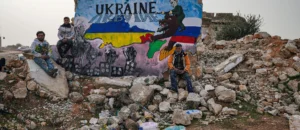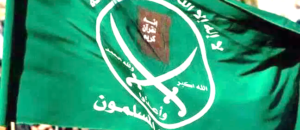UNICEF said Monday that Syria was now among the most dangerous places on Earth to be a child, pointing to high child casualty rates, brutalizing and traumatic violence, deteriorated access to education, and health concerns. The number of children suffering in Syria more than doubled in the third year of the conflict, with an estimated 2 million children in need of psychological support or treatment. In addition, approximately 2.8 million Syrian children cannot go to school as a result of ongoing conflict. The United Nations World Food Program also raised an alarm Monday, citing the food crisis facing three of Syria’s northeastern provinces. On the other hand, WFP noted modest, increased relief access to some areas, including al-Houle in Homs for first time since May 2013. Meanwhile, a government official said that only 25 prisoners were released by the government in exchange for the 13 Greek Orthodox nuns that were released by Jabhat al-Nursa, contradicting reports that 150 prisoners were to be released.
Headlines
- Libyan officials reported Monday that they had taken control of the North Korea-flagged oil tanker docked at the rebel-controlled Sidra port, adding that the government would assemble forces to “liberate” all rebel-occupied oil ports in the country. Rebel forces released a contradictory statement Tuesday asserting that the oil tanker had reached international waters overnight, carrying oil.
- The Israeli Knesset passed the Governance Law, which limits the number of government ministers and raises the minimum electoral threshold for parties to win representation in parliament from 2 to 3.25 percent. The law is one of three in a package deal that includes a law to draft ultra-Orthodox Jews into the military and a law to require a referendum in order to approve withdrawal from Israeli-held territory. The opposition boycotted the vote in protest protesting that the law provides too much power to the government and makes it difficult to overthrow the government.
- A 15 year-old boy who had been in a coma since being hit in the head by a gas canister during a police crackdown on Turkey’s Gezi Park June 2013 protests passed away Tuesday morning. Berkin Elvan is the eighth death related to the Gezi Park protests.
- The International Monetary Fund has warned Qatar that it is likely to see higher labor costs as a result of the publicity of the working conditions and deaths of migrant workers in the country. Meanwhile, Qatar has applied for a U.S. “preclearance” customs post that could offer advantages to government-owned carriers in the Gulf, angering U.S and European carriers that operate in the region.
- Three prominent activists of Egypt’s 2011 revolution — jailed in December 2013 for violating Egypt’s anti-protest law — claimed in an court hearing Monday that they have been abused in prison. A lawyer representing Ahmed Maher, Ahmed Douma, and Mohamed Adel said that the court has refused to refer the three to forensic doctors to investigate their claims.
Arguments and Analysis
‘Experts Call on Obama to Promote Bahrain Reform During Visit to Saudi Arabia‘ (Project on Middle East Democracy)
“As the situation in Bahrain continues to deteriorate, addressing this issue must be an urgent priority. The State Department recently assessed the Bahraini government’s progress in implementing the recommendations of the 2011 Bahrain Independent Commission of Inquiry (BICI), and found that only five of its 26 recommendations were fully implemented. The assessment also recognized the Government’s failure to investigate claims of torture and cases that resulted in death, to ensure that individuals are no longer charged or detained for exercising their right to free speech, or to foster an environment that promotes dialogue.
Efforts last year to negotiate a political solution collapsed after the process failed to deliver any real progress, key opposition figures were arrested, and human rights violations continued. As you said in 2011, ‘The only way forward is for the government and opposition to engage in a dialogue, and you can’t have a real dialogue when parts of the peaceful opposition are in jail. The government must create the conditions for dialogue, and the opposition must participate to forge a just future for all Bahrainis.’ That was true then, and remains true today.”
‘Israel Watches Warily as Hezbollah Gains Battle Skills in Syria‘ (Isabel Kershner, New York Times)
“‘This kind of experience cannot be bought,’ said Gabi Siboni, director of the military and strategic affairs program at the Institute for National Security Studies at Tel Aviv University.
Mr. Siboni and other analysts said that Hezbollah’s experience in Syria should not be overstated since the group is fighting rebel forces like the Free Syrian Army and jihadist groups, not a modern, regular army. Still, Mr. Siboni said: ‘It is an additional factor that we will have to deal with. There is no replacement for experience, and it is not to be scoffed at.’
While the Israeli military used to plan for conventional armored battle — tanks against tanks — now its forces train to withstand fighters who have antitank missiles and secret underground hide-outs.”
— Cortni Kerr




